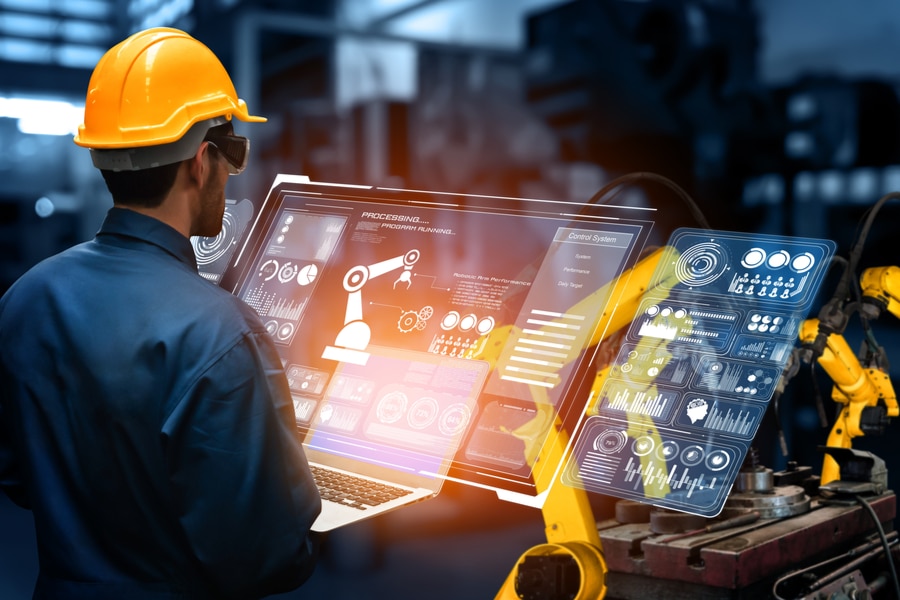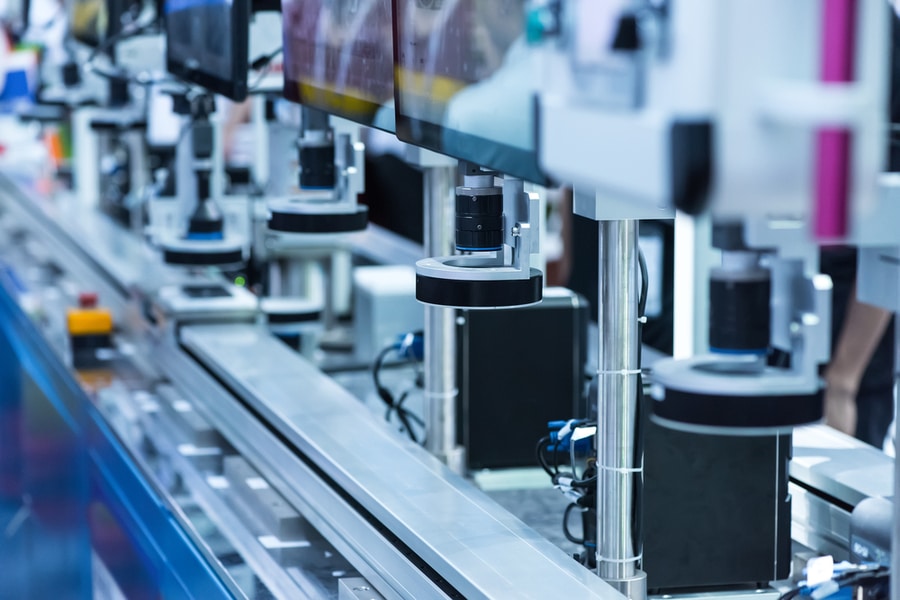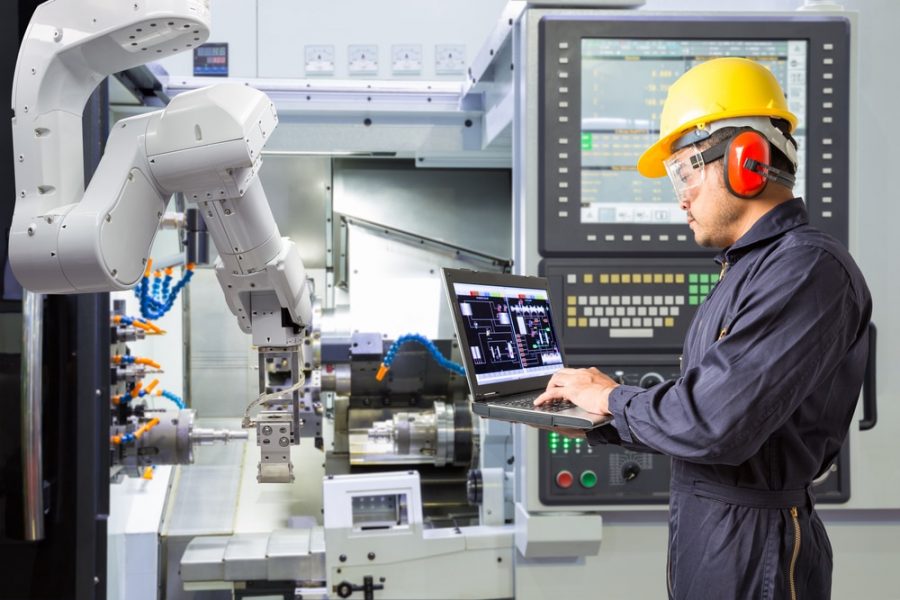Industrial automation is a term used to describe the application of technology to control industrial processes, which is what happens when tasks for human workers are done or assisted by machines through factory automation. Industrial processes can be controlled manually, but with industrial automation, machines can be controlled through the use of computers and other electronic devices.
There are four main types of industrial automation: fixed automation, programmable automation, flexible automation, and integrated automation.
Fixed Automation System
Fixed automation is the simplest type of industrial automation. In a fixed automation system, the machines are permanently set up to perform a specific task. Once the task is completed, the machine is reset and waits for the next task. Fixed automation systems are used in industries where the tasks are repeated over and over again.
Examples of a flexible automation system are mass production factories for food and other items where the products are moved through a conveyor.

Programmable Automation System
Programmable automation is more complex than fixed automation. In a programmable automation system, the machines can be programmed to perform a variety of tasks. This allows factories to produce a wider range of products thanks to the way that the sequence of operations and machines involved can be changed. Programmable automation systems are used in industries where the tasks vary from one batch to the next.
Flexible Automation System
Flexible automation is the most complex type of industrial automation. In a flexible automation system, the machines can be programmed to perform a variety of tasks, but they can also be adjusted to change the way they perform those tasks. This allows factories to produce a wider range of products, and to make changes to their production line quickly and easily. Flexible automation systems are used in industries where the products vary from one to the next.
CNC machines are one example of a flexible automation system in a production line.
Integrated Automation System
Integrated automation is the most complex type of industrial automation. In an integrated automation system, the machines are all connected to a central computer. This allows the factory to control all aspects of production from a single location. Integrated automation systems are used in industries where the products are produced in small quantities and where changes to the production line need to be made quickly and easily.
The individual processes involved in the use of CAD, CAM, computer, equipment, machines, and operators, robots, and cranes are seamlessly controlled through a single interface for scheduling and production control through an integrated automation system.

The Key Differences Between Industrial Automation Systems
Each of these types of industrial automation has its own advantages and disadvantages.
Fixed automation systems are the simplest and cheapest to install, but they are limited in the number of tasks they can perform. Programmable automation systems, on the one hand, are more expensive to install than fixed automation systems, but they allow factories to produce a wider range of products.
Flexible automation systems can be the most expensive to install, but they allow factories to produce a wider range of products and to make changes to their production line quickly and easily.
Integrated automation systems can also be expensive to install, but they allow factories to control all aspects of production from a single location, which offers the most customizability.
In factory automation, the type of industrial automation system that best works will depend on the specific needs of the factory. However, in general, programmable automation systems are the most versatile, flexible automation systems are the most efficient, and integrated automation systems are the most efficient and provide the greatest control over production.
If you want to start automating your manufacturing business, it’s worth considering how each of these different types of industrial automation could help you achieve your goals, given the factors that can impact your bottom line.
Send us a message today and we’ll help you get started on factory automation.

